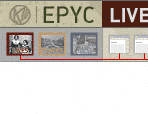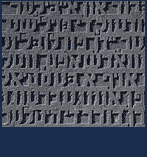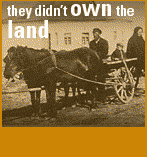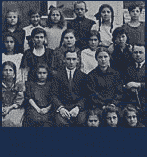

Schools
Because Odessa was such a modern and liberal city, there was an exceptionally strong secular ethic among its Jews. Nevertheless, the city contained many of the religious schools common to every other large Jewish community, including a famous yeshiva headed by Rabbi Chaim Tchernowitz, where scholars such as the great Hebrew poet Chaim Nachman Bialik both studied and taught. At the beginning of the 20th century, there were about 200-khedorim left in Odessa, serving 5,000 mostly impoverished pupils.
In Odessa, the movement to assimilate into national Russian culture (though Jews were often denied the opportunity to assimilate into the local Russian culture) was particularly strong. Secular or nominally religious schools, whether Russian, Hebrew, or Yiddish, were quite attractive to the majority of Jews, even early in the community's history. In 1826, a secular public school was established to instruct young Jews in a combination of religious and modern methods, with considerably more emphasis on the latter. Subjects included Talmud, Hebrew, Russian, French, German, mathematics, science, and rhetoric. Ten years later a similar school was founded for girls, with the addition of needlework. Steadily increasing numbers of Jewish students enrolled in Russian schools of all varieties. Secular colleges teaching agriculture, arts, music, and liberal professions were also popular, as were vocational schools, most notably the well-known school of the Trud Society, which offered courses in mechanics, cabinet-making, and ironwork among other subjects
Great Leadership in Politics and Art
Although Socialism including the Bund were strong in Odessa, the city - a rigorous and intellectual cauldron - by the end of the 19th century was a particular center for Zionism. One of the movement's greatest heros, Ahad Ha-Am, was from Odessa (1856-1927). Born Asher Ginsberg - his assumed name meant 'One of the People' - he formed the Bnei Moshe Society in 1889 in order to energize the Jews of Russia into Zionist action. He worked tirelessly writing essays in Hebrew and Yiddish, and became known for his cultural definitions of the Zionist goal.
Another great Zionist leader was Vladimir Ze'ev Jabotinsky (1880-1940), a journalist and passionate speaker who founded the Betar movement of Revisionist Zionism, which called for a non-Socialist approach to Zionism. Many others Zionist leaders called Odessa home. These included Meier Dizengoff, Ber Borochov, Moses Loeb Lilienblum and Leo Pinsker. Each was instrumental in creating a Jewish nationalist society, bringing together as a people disparate Jews through politics, Hebrew language and education, and the dream of a safe refuge in Palestine. Each of these men was more than just a Zionist follower. These were the leaders and creators of diverse schools of thinking that developed the Zionist ideals.















